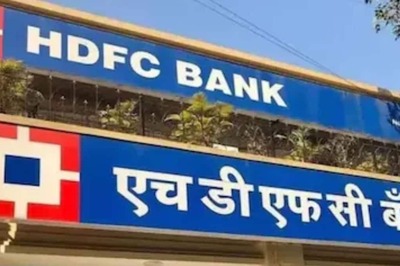
views
When Rajagopal, a farmer in his 70s, took a loan for his daughter’s wedding, he had no reason to worry about repayment. He decided that he would sell his farmland in Tiruchendurai village in Tamil Nadu to repay the loan. But in a shocking turn of events, he was told that the land was not his.
How is that possible, asked Rajagopal. He was told to get a no-objection certificate (NOC) from the Tamil Nadu Waqf Board to proceed with the sale of his land. He then learnt that this had to be done as the entire village of Tiruchendurai had been declared Waqf property. This is as per an entry dated December 28, 1956, in the Tamil Nadu Waqf Board register which said that the entire village was “donated’ as Waqf by Anwaruddin Khan, who was nawab of Arcot from 1672 to 1749.
Experts say that this order was passed most probably because the nawab wanted to avoid the illegal sale of Waqf properties. But in present times, this means farmers like Rajagopal cannot sell their land without a go-ahead from the Waqf Board.
News18 learnt that the CEO of the Tamil Nadu State Waqf Board had requested the registration department to assign zero value to Waqf properties to avoid illegal sales. But this could not happen due to stiff opposition while the minority affairs department and the state government stayed the move.
News18 spoke to Rajagopal on the plan of the government to bring in amendments to the Act. “I am very happy even though it may be late for me. But it’s our hard-earned money and we want to keep it with us,” he said.
Rajagopal is not the only one. There are many such stories across the country where Waqf Boards have been accused of usurping land.
For example, the Bengaluru Eidgah ground has been claimed as Waqf property since the 1850s. The Surat municipal corporation building is claimed as meant for use as sarai (place to rest) during Haj in Mughal times. The claims on two islands in Bet Dwarka are considered perplexing by courts.
The central government now wants to do a course correction via the Waqf Act amendments.
As per sources, the claims on properties made by Waqf Boards will be mandatorily verified. Similarly, mandatory verification has been proposed for disputed properties of Waqf Boards.
Catch the latest developments on Bangladesh Unrest with our live blog.




















Comments
0 comment